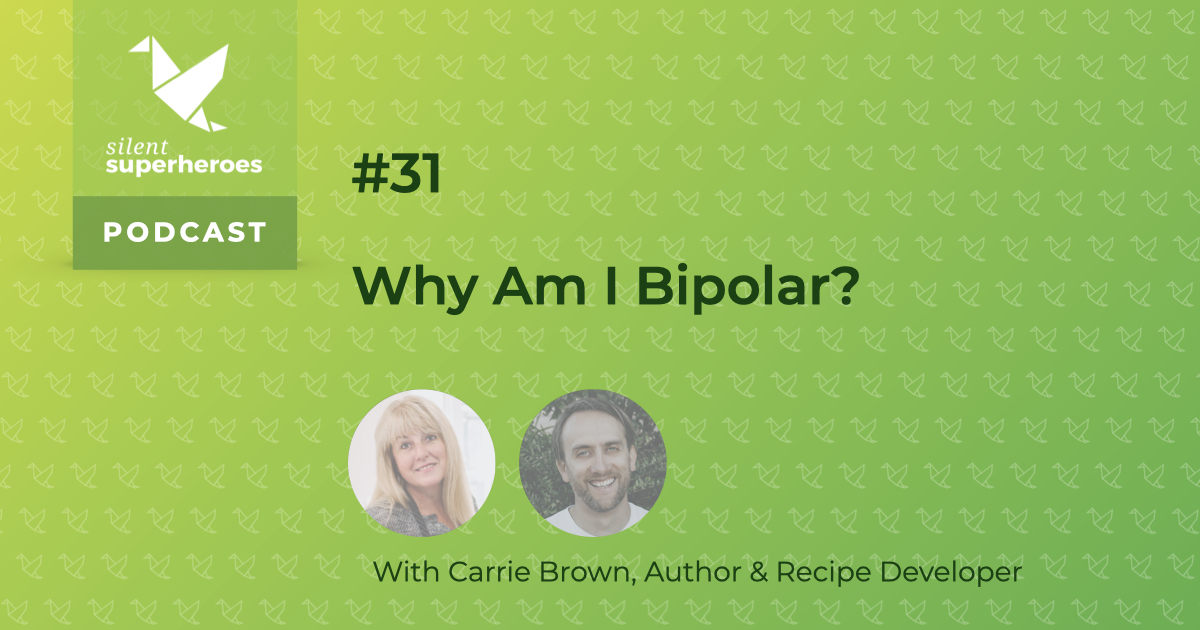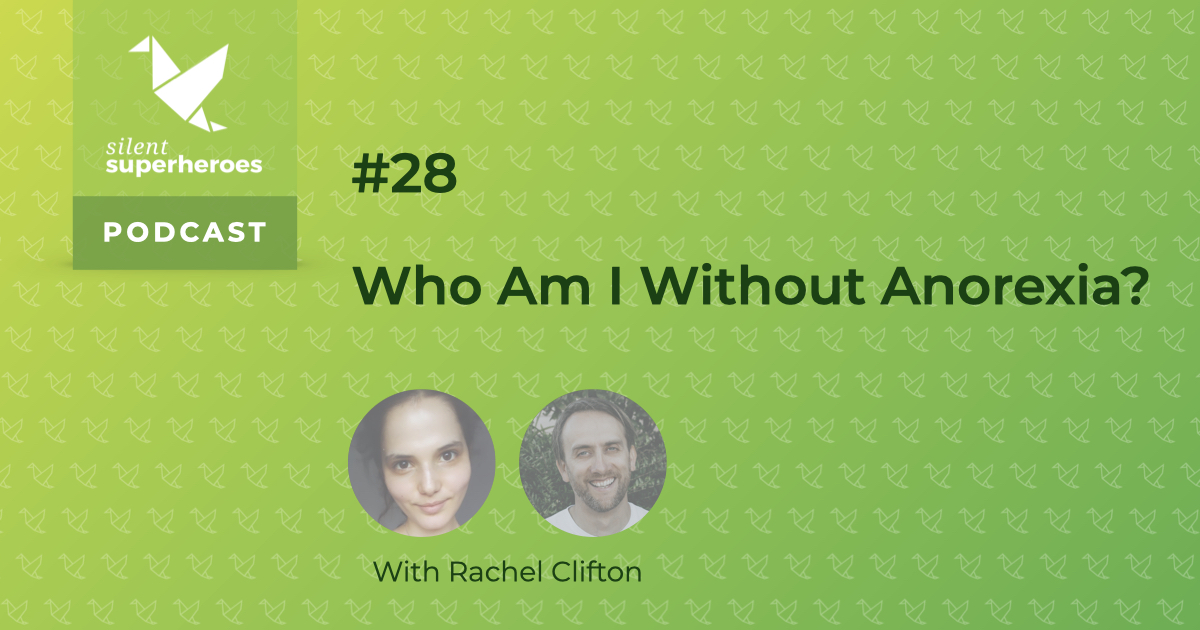Carrie started her career as a pastry chef in the United Kingdom. 30 years later, she’s a leader in the Ketogenic diet scene and the author of 5 popular Keto cookbooks including books on crock pot meals, soup and ice cream. In between pastries and keto, Carrie spent twenty years working the grind of corporate America. It was there that she discovered she had bipolar 2. Dissatisfied with her treatment options, she set off to find her own solution to bipolar 2. Ultimately she answered and to answer the question “Why am I bipolar?”.
Podcast: Play in new window | Download (Duration: 49:32 — 23.8MB)
In this episode of Silent Superheroes, Carrie will talk about her early life living misdiagnosed with depression. She’ll share her experience of being handcuffed and sent to hospital for considering suicide. And finally, she’ll explain the lifestyle changes she made based on researching her genetics and changing her diet, changes that have lead her to many years of bipolar free living.
Links
- Read Carrie’s protocol for answering “Why am I bipolar?” (link)
- Get Carrie’s Cook Books (link)
- Watch Carrie on Youtube (link)
- Visit Carrie’s website (link)
About Bipolar
Bipolar disorder is a mental health condition that causes extreme mood swings. For example, mood swings include emotional highs called mania or hypomania, and lows called depression. On the other hand, Bipolar disorder used to be called manic depression.
When depressed bipolar patients may feel sad or hopeless and lose interest in most activities. Then, when a patients mood shifts to mania or the less extreme hypomania, patients may feel euphoric, full of energy or unusually irritable. These mood swings can affect sleep, energy, activity, judgment, behavior and the ability to think clearly.
Episodes of mood swings may occur rarely or multiple times a year. While most patients will experience some emotional symptoms between episodes, some may not experience any.Although bipolar disorder is a lifelong condition, patients manage mood swings and other symptoms by following a treatment plan. In most cases, bipolar disorder is treated with medications and psychological counseling. Causes of bipolar aren’t clear, so your doctor cannot typical answer the question “Why am I bipolar?”.
Getting Support
Remember, the people you hear on Silent Superheroes are sharing their opinions about mental health and mental illness. They are not giving advice. For that reason, please consult with your care provider before making a change to your treatment approach.
It’s important to take your mental health seriously. Consequently, if you need to speak to someone you can call 1-800-273-8255, or text crisistextline.org on 741741. Both provide 24×7 confidential counseling to people in the United States. Worldwide visit http://iasp.info/resources/Crisis_Centres/
Because you listened to the podcast, you can help others find it by leaving us a review on iTunes. Or if you don’t use iTunes, leave a review on your favorite podcasting service.



